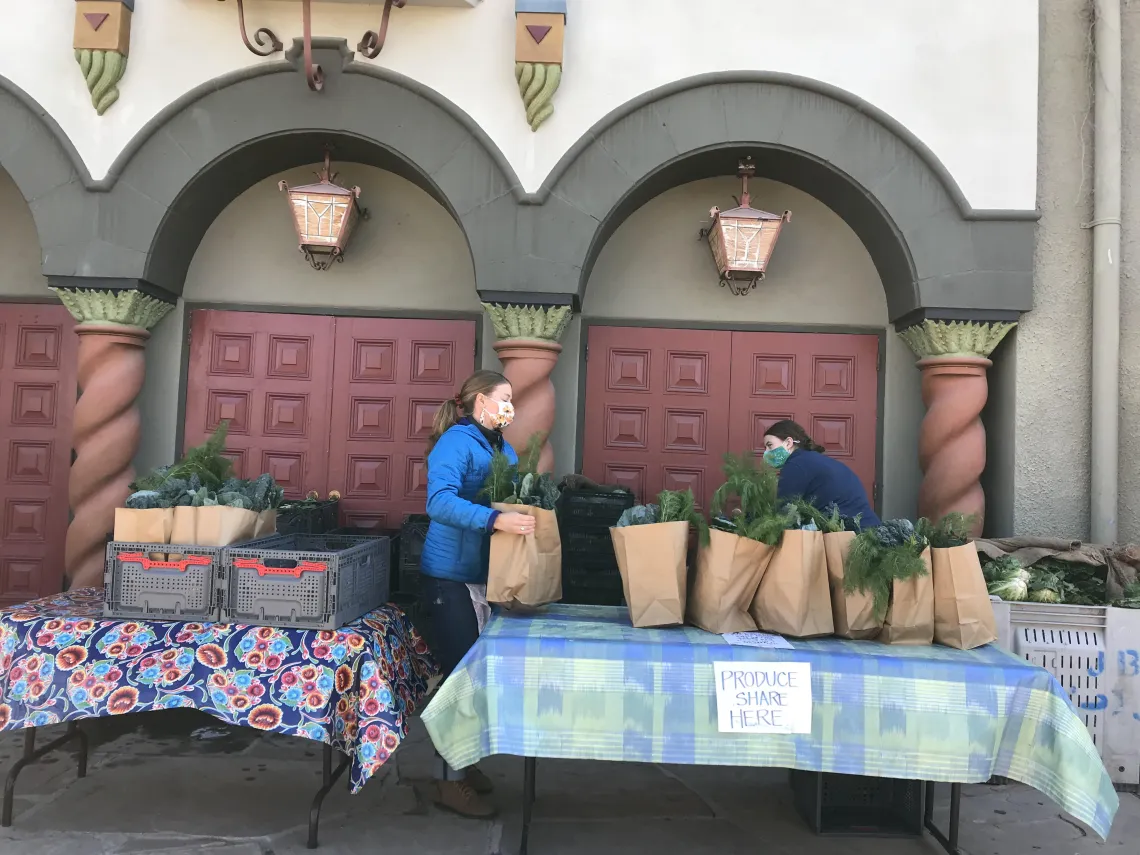New Report Documents COVID-19 Impact on Southern Arizona Food System

Researchers with the University of Arizona Center for Regional Food Studies and the Climate Assessment for the Southwest released a new report documenting the pandemic's impact on southern Arizona's food system. The report summarizes pandemic impacts on local food producers, distributors, restaurants, and food and agricultural organizations. It also looks at how to strengthen the local food system in the future.
The publication was a collaborative effort between the Center for Regional Food Studies, housed in the College of Social and Behavioral Sciences, and the Climate Assessment for the Southwest, or CLIMAS, housed in the Arizona Institutes for Resilience.
Local Food Systems Crucial in Crisis
The UArizona research team conducted surveys and interviews with local farmers and ranchers, food distributors, restaurants, and food and agricultural organizations about the impacts of COVID-19 and how those working in southern Arizona's food system have responded.
"We found that local food systems play a crucial role during times of crisis," report co-author Owen said. "Flexibility, pre-established networks, sharing resources and open communication channels were vital to developing an effective local response to the pandemic. Relationships, trust and local expertise are the building blocks of social systems that are adaptable to various forms of risk."
Among the report's key takeaways:
- During the pandemic, farmers and ranchers faced many challenges, including changing demand and loss of markets for products, increased costs and labor needs, and barriers to accessing relief funds. Food producers responded by finding new ways to reach consumers through online marketing, food box subscriptions and new partnerships with organizations and agencies that purchase local foods for redistribution to those in need.
- Local restaurants, which represent a significant market for locally grown food, also faced challenges. Many closed permanently due to the economic impacts of stay-at-home orders, distancing requirements and public health guidelines restricting indoor gatherings. Those that stayed open responded by shifting to take-out, downsizing staff and, in some cases, pivoting to retail or online sales and events.
- Food distributors navigated increased consumer demand for local food and the closure of typical distribution channels such as restaurants and schools. They contended with numerous hurdles as they quickly changed their business models and operations to adapt to the new environment. Supply-chain disruptions led to acute food insecurity on the Tohono O'odham Nation. Mutual aid collectives also emerged early on in the pandemic and worked to distribute food to communities throughout Tucson.
- As the pandemic impacted the local food system, local food and agricultural organizations were key in providing communication channels, advocating for supportive policy and redistributing relief funds and other resources. Organizations such as the Community Food Bank of Southern Arizona and the Arizona Food Bank Network also played major roles in buying and redistributing products from farmers who lost their markets.
"People in our community helped as well, by supporting local farmers markets and developing community aid networks," Owen said, adding that there is concern that consumer demand for local food may dwindle after the pandemic subsides.
While the report focuses on the pandemic's impact, it also looks at lessons for the future of southern Arizona's food system. The report identifies challenges for strengthening the local food system, including issues related to land access, agricultural workforce development, water and climate.
"The report provides an important and illuminating assessment of the how southern Arizona's food and agricultural systems have been impacted by the pandemic," co-author Bellante said. "We hope that it will serve as a catalyst for conversations about how to strengthen the local food system to be better prepared to respond to economic and environmental disruptions in the future."
Contacts:
Researcher contacts:
Gigi Owen
Climate Assessment for the Southwest
gigi@arizona.edu(link sends e-mail)
Laurel Bellante
Center for Regional Food Studies
bellante@arizona.edu(link sends e-mail)
Media contact:
Lori Harwood
College of Social and Behavioral Sciences
520-626-3846
harwoodl@email.arizona.edu

